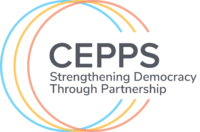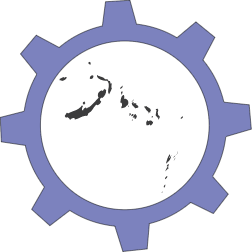Youth Leadership Training
School
With support from CEPPS/IRI, the Solomon Islands National Council of Women (SINCW) encouraged youth empowerment through its Youth Leadership Training Schools (YLTS), which targeted young people from Western, Malaita, Guadalcanal, and Choiseul Provinces. Participants came from a variety of backgrounds, including individuals representing church youth organizations, community-based youth organizations, the Western Provincial Youth Council, the Youth Caucus, and the Provincial Government. The objective of the training series was to support the inclusion of youth in local governance through soft skills-building and knowledge sharing activities. In particular, the training modules included team-building activities that focused on leadership development, including transformational, authentic, servant, and team leadership.
By empowering young people with leadership skills, they are able to amplify the impact of locally-led initiatives. Therefore, participants were encouraged throughout the YLTS to reflect on their learning and how the training applied to their existing work as youth leaders. For example, Cynthia Soófi Grace Agofi, a young woman from West Kwaio in Malaita Province, Solomon Islands, was a participant at CEPPS/IRI’s YLTS and applied the lessons learned to improve the local economy. Prior to participating in YLTS, Cynthia said she felt like she had no understanding about types of leadership and how to most effectively lead the Waneagu Sulanasina Youth Network (WSYN), a ward committee she founded to improve the meaningful engagement and participation of youth in the socio-economy of West Kwaio. In fact, she found WSYN particularly challenging to lead, given its size and diversity. Since attending CEPPS/IRI’s YLTS, Cynthia has changed her attitude toward her role and has found a new confidence to lead the network, which she directly attributes to participating in the YLTS. With the confidence and leadership skills acquired through the program, Cynthia was able to expand WSYN to include over 1,200 people from across communities and religious groups.
Support for University of South Pacific Student Association (USPSA)
To engage young people in the Pacific Islands as decision-makers and active members of their communities, CEPPS/IFES supported the University of South Pacific Student Association (USPSA) as part of its “Good Citizenship” initiative, which promoted the basic tenets of citizen responsibility and democratic solidarity during the COVID-19 pandemic. As part of its support to USPSA, CEPPS/IFES launched the “Advocacy for Inclusive COVID-19 Response and Recovery” webinar series which provided knowledge and skills-building sessions to assist students in developing a Policy Platform for Pacific Youth and advocacy plans based on the identified needs in the policy platform. Coming from different backgrounds, degrees, and communities themselves, the students identified a variety of priorities to address in the policy platform, such as supporting the rights of young people with disabilities, improving education, and youth political involvement in raising awareness around COVID-19.
As part of the webinar series, CEPPS/IFES shared examples of digital advocacy and how the policy platform tool can be used to advocate for youth engagement in decision-making processes during COVID-19. CEPPS/IFES held a variety of support sessions to accommodate student needs such as group consultation webinar sessions, bi-weekly virtual webinar sessions, one-on-one mentoring calls, and provided budgetary support to student leaders implementing their advocacy plans organized around the platform’s three priority areas. Continuing the student-led advocacy efforts in line with the policy platform, student leaders held webinars, events, and discussions in the lead-up to International Youth Day on August 12, 2021.
To address the priority area of improving education, the students engaged various stakeholders, such as the government and higher education institutions. In these efforts, the students advocated for national and elected leaders to increase and diversify funding and resource support to make education more accessible; examine and revise education curriculum for relevance and diversity in content and delivery; and prioritize attracting, training, and retaining teachers. To address the priority area of supporting the rights of young people with disabilities, the student leaders hosted webinars to raise awareness for their cause.
To increase the reach of the webinars, the student leaders also created a Facebook group, “Count Me In: Disability Advocates,” and a Facebook page, “Count Me In.” To support the priority area of youth political participation, student leaders from the Fiji, Nauru, and Solomon Islands branches of USPSA held youth-led discussions focused on young people and their roles within democracy. Speakers at the various events included prominent advocates for youth participation such as a professor from the University of the South Pacific, a member of the Fijian Parliament, the Chair of Pacific Islands Association of Non-Governmental Organizations, the Assistant Director of the Nauru Youth Affairs Department, and the Chair of Malaita Provincial Youth Council – Solomon Islands.

